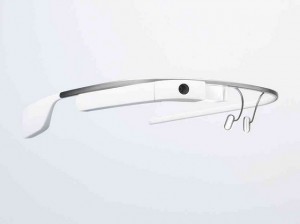Google Glass may have night vision
Google Glass debuted in 2013 as an experimental product. Google glass offered a head-mounted display and delivered information in a hands-free format. The product was put on the market in mid-2014, and almost immediately became a focus of concern for safety advocates and legislators alike. By January 2015, Google announced that it was pulling Glass off the market, but that it would continue to develop the product behind closed doors.
Google Glass has new life in medicine
Recently, Google applied for a new patent related to Google glass. The patent application indicates that Google intends to add night vision to the erstwhile product at some point. The application confirms that development on Google Glass continues. Despite the fact that it’s not available on the open market right now, the world hasn’t forgotten about Google Glass and its potential applications.
Despite its shortcomings “in the wild,” Google Glass is earning high marks in the Emergency Room. Doctors at the University of Massachusetts Medical School use Google Glass to communicate with other doctors both inside the medical complex and elsewhere. Using Google Glass has significantly increased the doctors’ confidence in their diagnoses, partially because they can consult with other specialists, and partly because they can bring information into the diagnostic process more efficiently. The School also had to make some investments into the devices to make them HIPAA compliant.
Emergency room physicians aren’t the only ones who have incorporated Google Glass into their environment. Plastic surgeons at Georgetown University Hospital are also using Google Glass during cosmetic and reconstructive surgical procedures, with positive results.
Google Glass has also found a following among clinicians who work with autistic children. Google Glass is used to help affected children “read” the faces of those around them. Autistic individuals often have difficulty interpreting the facial expressions of others. Facial recognition software, written by researchers at Stanford University, helps autistic children associate emotions with common facial expressions. The goal of the Stanford program is to assist autistic individuals in becoming more socially engaged.
Glassprimer™ glass paint isn’t used in medical research – at least not that we know of – but it can help you incorporate outstanding color and UV protection into your interior and exterior decorating projects. Glassprimer™ glass paint is a cost-effective, durable coating for glass surfaces, and can create a frosted effect for about $1 per square foot. If you’d like more information about Google Glass, you’re going to have to wait – it’s not currently available. If you’d like more information about Glassprimer™ glass paint, please visit the rest of our site. Best of all, Glassprimer™ is available right now at our online store .
Photo Credit: CyberHades, via FreeImages.com

